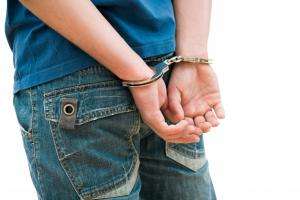The mental scars left behind when we handcuff children

Professional Social Work magazine, 4 February, 2021
Many of us have struggled over the last year, but for most, these struggles will ease once life returns to some sense of normality.
Sadly, for many vulnerable children and young people in care, the results of the challenges they are facing will continue to have a profound impact on their mental health long after the pandemic is over. One of the most shocking challenges they endure is the mental effects of being physically restrained.
Physical restraint refers to any technique used to restrict the movement of children and young people. From first-hand experience of working with children in care, the most distressing of all of these are the acts of handcuffing and head control.
While there are a few occasions where such measures are necessary, for example where there is a considerable risk of the child harming themselves, I have been horrified to see so many vulnerable young people in the UK being handcuffed or restrained in inappropriate settings and without any justifiable cause.
Unmonitored, unregulated: this is a nationwide scandal going largely unnoticed in the UK. Every day in the UK, vulnerable children and young people are treated like criminals, despite the practice being condemned by the Children’s Commissioner, the UN Committee against Torture, and at the UN Convention on the Rights of the Child.
This is happening as they are transported to new care homes, to courts, and from police stations; it is vital to note that these are not youth offenders we are talking about here, simply children whose only ‘crime’ is coming from a troubled background completely out of their control.
They are simply written off as ‘difficult’, treated as lesser, without kindness or empathy for their situations.
One example that sticks in my mind is a boy who was being taken from his family into care for the first time. He was understandably distressed, and in refusing to leave his home, the police were called.
The threat of handcuffs in this situation was completely unacceptable and just one example of how they are often used as the first resort, when so often these situations can be alleviated through simple patience, understanding and mentoring as a de-escalation.
Handcuffing and physically restraining children leaves a mental scar which takes years to heal, long after the red marks around their wrists have faded. Children and young people have told us about the PTSD they suffer from the experience; the feeling of helplessness and confusion as they try to understand why and how they’re being treated this way. They feel increasing distrust and hostility towards the system which can then make it even harder to help them.
What’s more, if the experience of being caged and handcuffed leaves a child too terrified to get in another vehicle again, they’ll miss important therapy appointments – and the vicious cycle of declining mental health continues. Vulnerable children have no hope of building back their mental health if they are too emotionally scarred to even travel.
I know of one young girl who suffers recurring nightmares of a time when she was physically restrained at her foster parents’ home. Simply because her foster carer no longer wished to look after her and she was deemed a runaway risk, three huge men burst into her room in the middle of the night as she slept, handcuffed her, and placed her into a vehicle.
The practice of handcuffing is not only widespread but is completely unmonitored - there is no legal obligation to report any instances and circumstances when a child is physically restrained.
These children already feel voiceless, and their trauma is being silently swept under the rug – which is why I am launching a new campaign called ‘Hope instead of Handcuffs’ to ban the use of handcuffs unless absolutely necessary, and I call on the government to recognise that a new approach is needed that puts children and young peoples’ mental wellbeing first, treats them as victims not criminals, and provides them with the means to rebuild their lives.
If we couldn’t imagine a situation where we would use handcuffs on our own children, we cannot allow it to happen to any young person.
Emily Aklan is founder of children’s welfare provider Serenity Welfare
